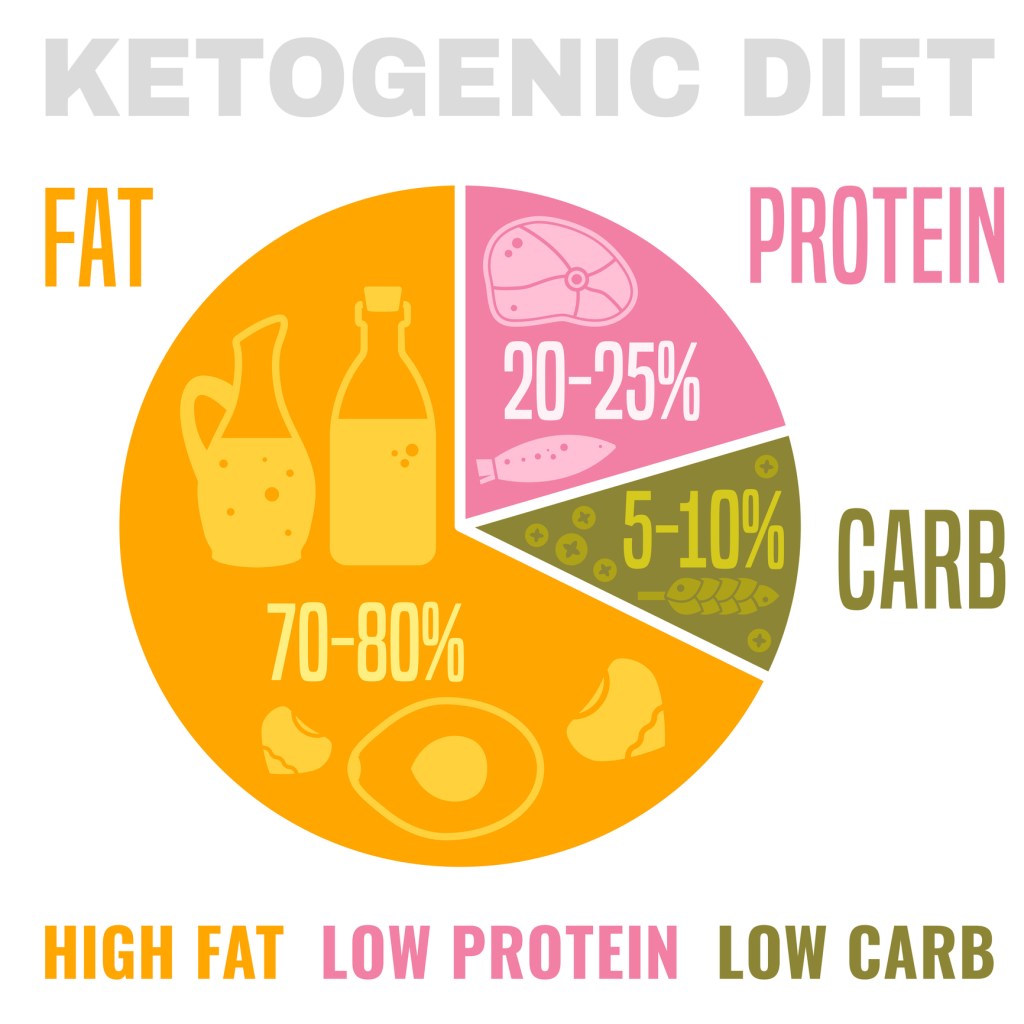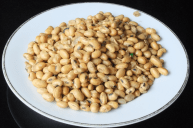Low carb diets have been popular for quite some time, with promises of weight loss and more importantly, keeping it off. But just like no diet fits all, no low carb diet fits all either, whether you follow a low carb vs keto diet.
Whether you decide to follow the keto diet and go hardcore or just decide to give up on bread and pasta, cutting carbs to a minimum requires changes in every aspect of your nutrition, from switching up your usual meals with low carb versions to the actual planning of recipes and how to handle friends and family gatherings. And if you're following a specific fitness program or trying to reach a goal, be prepared to change that too. The chances of increasing your performance on a low-carb diet are slim.
Low Carb Diet vs Keto Diet

Getty Images
What's the difference between the two and is one better than the other? Does being low carb immediately put you in ketosis?
The truth is, there's a huge difference. The keto diet is an extremely low-carb diet that consists of high fats, moderate protein, and only 5% to 10% carbohydrates. Typically, this equates to 20-40g of carbs per day. Just for reference, one banana contains approximately 27g.
The ketogenic diet was created in 1921 as a therapeutic diet for pediatric epilepsy, but it gained popularity for being a rapid weight loss formula, at least short-term. The premise of the diet is to make your body utilize fat for fuel instead of glucose, our main fuel source. When the human body is deprived of carbohydrates and reduces the amount to less than 50g per day, insulin secretion is significantly reduced, making the body go through a number of important metabolic changes. Two of the most important metabolic changes include gluconeogenesis and ketogenesis.
Gluconeogenesis happens first and it's a process that derives glucose from any other source except carbohydrates. These sources include lactic acid, glycerol, and the amino acids alanine and glutamine. Once this storage gets depleted, the body starts ketogenesis, or breaking down fatty acids into ketones which replace glucose as the main source of fuel. This taps into your fat storage and helps you lose fat.

Getty Images
Once your body adapts and learns how to efficiently use ketones for fuel instead of glucose, it promotes weight loss and helps those struggling with insulin resistance and more severe cases, such as type 2 diabetes, Alzheimer's disease, and a variety of autoimmune diseases.
The problem arises when more than the allotted 20-40g of carbohydrates are introduced as the body goes directly for that glucose, spiking up insulin and forgetting all about ketones. This happens because our bodies prefer using simple sugars for fuel.
On the other hand, if you're merely choosing to go low carb, there is no specific grams of carbs you need to be under. You can simply choose to give up on bread and pasta, replace rice with cauliflower rice, and skip on dessert, and you'll already be living a low-carb life. You won't be in ketosis and your body won't utilize only ketones for fuel, but you'll have fewer carbs to work with, making your body tap into those fat deposits.
Keto Diet Side Effects
One of the reasons people give up on ketogenic diets has to do with the most common side effects they might experience. Even though they're usually short-term, they can deter you from going any further. The most usual include nausea, vomiting, headache, fatigue, dizziness, insomnia, difficulty in exercise tolerance, and constipation. The combination of these side effects is sometimes referred to as the keto flu.
Health Benefits of Low Carb Diets
Carbohydrates are one of the three main macronutrient groups, in addition to fats and protein. They are our main energy source and play a huge role in the human body, controlling insulin production and promoting digestive health. They get broken down into sugars, with glucose being the main energy driver.
When not used up immediately, excess glucose is converted into storage form, glycogen, or converted into fat and stored in body fat cells. Glycogen can be found in the liver and in our muscles and when the need for energy arises, the storage starts getting depleted.

Getty Images
Unfortunately, today's way of living and standard human diets have an unnecessarily high amount of carbs which most people can't seem to use, transforming it all into storage way past their body's capacity level. The body then starts using fat cells for storage, but the rate of conversion isn't fast, and glucose stays floating in the bloodstream, causing inflammation and wreaking havoc throughout the entire body. This is where low-carb diets can really be helpful.
Low carb diets can help lower that inflammation and keep it at bay, as well as reduce your appetite and help you control your cravings. Studies show how reducing carbs leads to lowering cholesterol and triglyceride levels while increasing the levels of your good cholesterol, lowering blood sugar levels and insulin production, as well as bringing your blood pressure down.
Your Low Carb Meal Plan
The usual low-carb meal plan consists of high fats, moderate protein, and of course, low carbs. The veggies are usually leafy greens, beans, and legumes, the protein can come from any source, and the fats are recommended to follow the Mediterranean diet and include olive oil, fatty fish, and avocados.
Unfortunately, many people see the word high-fat diet and immediately fill up on bacon, loads of animal fat, cheese, and other saturated fats. As a matter of fact, the original Atkins diet got as much as 26% of its calories from saturated fat versus the 10% or fewer experts recommend. This can lead to higher cholesterol levels, higher blood pressure, as well as a myriad of cardiovascular issues down the road.
This is where nutritionists and registered dietitians come into play and help create a low-carb meal plan that's best for your state and wellness.
Low Carb Diets Aren't For Everyone
Still, even though there's plenty of evidence of the health benefits of low-carb diets, they aren't for everyone. Not only is keeping the carbs down to a minimum hard on a practical level, but it can also have a huge impact on someone's mood and emotional state, energy levels throughout the day, as well as their health. Here are some of the reasons you might want to think twice before deciding to stick to a low-carb diet long-term.
It's Hard to Keep it Up
Staying consistent with a low-carb or ketogenic diet is challenging in more ways than one. You have to constantly make sure you're staying under a specific amount of carbs while ensuring your meals are filling and exciting enough so you don't get bored and tempted to stuff your face with pasta. You also need to make sure you're calorie intake is adequate for how much you're expending, but also choose only healthy fats and protein in your meal plan. There's the obvious issue with going out to restaurants and friends and family gatherings, and then there's the inevitable case of feeling you're missing out and giving in to your sugar cravings.
Keeping a low-carb diet long-term is harder than you might think and even the most hardcore keto dieters admit that's the case. This tends to bring on a negative view on meals themselves which leads to feeling miserable and has you question why you're doing this to yourself. For some, it may be a trigger to overindulge and binge on carbs as soon as they get the chance to, creating a very unhealthy restrict-and-binge cycle that can be hard to get out of.
Your Fitness May Suffer

Getty Images
If you're an active individual who loves fitness, you might find your strength diminishing and your endurance slightly tapering off when your carb intake is low. The reason for it is very simple: you have less energy available.
Until your body gets into ketosis and learns how to use fat for fuel, there's a pretty good chance it will start gluconeogenesis or breaking down protein to get to glucose. This will make it hard for you to gain more muscle or reach progress in the gym and it can make you frustrated and impatient.
Once your body starts utilizing ketones, you'll be able to use stored fat for fuel and optimize your high protein and high fat needs to grow muscle and get back on track for your fitness goals. Unfortunately, until that happens, you'll have to be patient and really push through your workouts even when you feel you have zero energy.
You Might Miss Out On Important Nutrients
When you choose to go low carb and especially when following the keto diet, a whole lot of foods become "forbidden" due to the number of carbs they contain. In addition to the obvious whole grains and processed foods, this includes restricting fruit and starchy vegetables, which are full of fiber, vitamins, and minerals your body needs to function properly.
Even if you're taking a multivitamin, your daily needs for these micronutrients is greater and you won't be able to get it from protein and dietary fat sources, no matter how healthy they are. You need fruit and veggies to fill up on those important nutrients.
Your Hormones May Be Out of Balance
Even though there's research that promotes low carb and keto diets for balancing out your hormones, long-term, your body might once again, find itself imbalanced, especially when it comes to female sex hormones. Lowering your carbohydrate intake for long periods of time might cause unwanted side effects such as disrupting the menstrual cycle, keeping estrogen and progesterone extremely low, causing amenorrhea (loss of period), early menopause, and fertility issues.
That's why before deciding to throw away all carbohydrates from your house, talk to your gynecologist and have her run some tests to see your hormone panel and whether or not going low carb will help you or harm you.
The Bottom Line
Low carb diets and ketogenic diets are great short-term. They aid in weight loss and promote overall health and longevity by lowering inflammation and helping your body utilize stored energy for fuel. Long-term, they can be hard to keep up, there aren't enough studies that showcase their health benefits, and cutting out a whole food group could potentially cause issues with your hormones.
The verdict on low carb vs. keto? The keto diet is much more extreme, and unless you're suffering from obesity, severe inflammation, or specific health conditions such as type 2 diabetes, you'll do so much better on a simple low-carb diet. You'll experience weight loss and fat loss, promote fat burning and reduce inflammation, but you'll be able to fill up on fruits and veggies and enjoy an occasional croissant without throwing yourself out of ketosis.
Karla is a writer, yoga teacher, nutritionist, and wellness coach with a strong passion for wellbeing and fitness. Helping others lead happier and healthier lives is her lifetime goal. She's a mom of an energetic and playful one-year-old and wishes even more so to stay on top of all things health and wellness-related.




